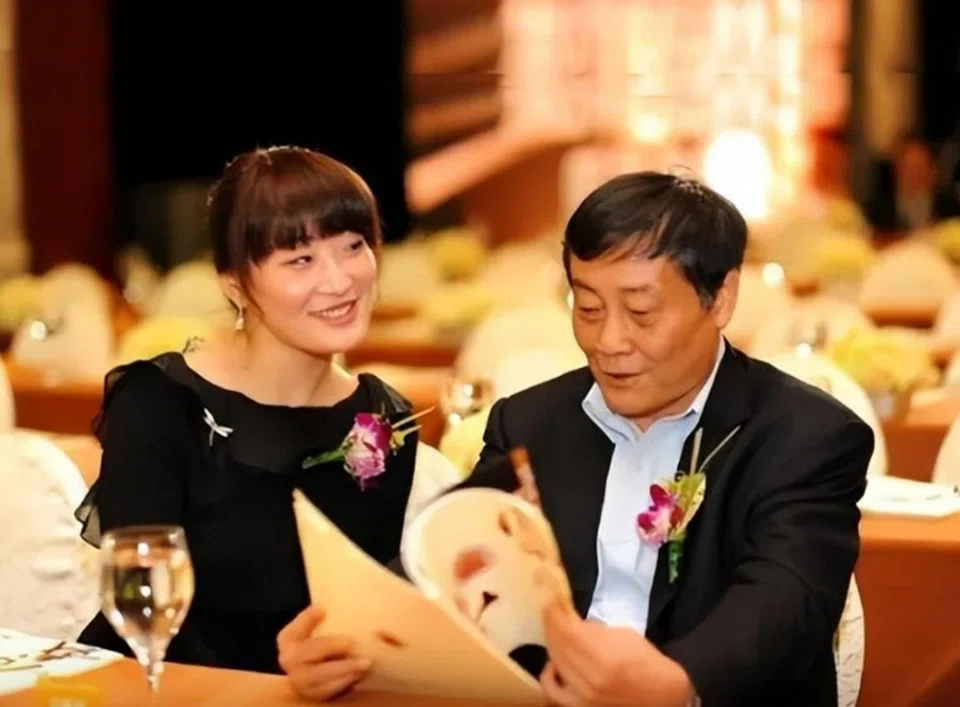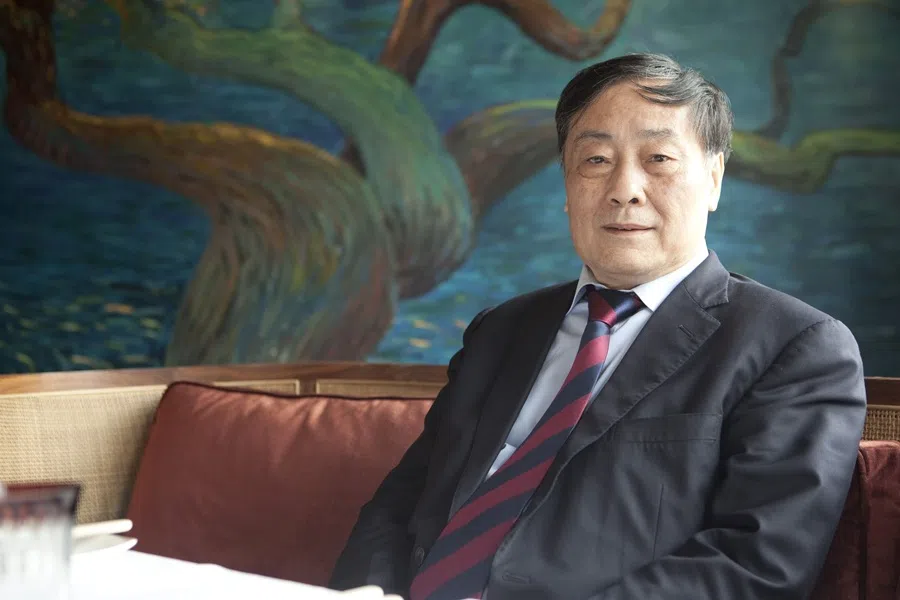China’s Wahaha: When a founder’s secrets undermine a company
As scandal-hit beverage producer Wahaha grapples with intensified scrutiny from the public and the government, its survival is increasingly in question. Can Wahaha and chairwoman Kelly Zong weather the storm? Lianhe Zaobao correspondent Yu Zeyuan tells us more.

The recent controversy over Wahaha’s inheritance and leadership, along with allegations of the group’s misappropriation of state-owned assets, has once again thrust Wahaha and its current leader, Kelly Zong Fuli, into the spotlight.
In sharp contrast to the nationwide mourning that followed the death of founder Zong Qinghou early last year, public sentiment has shifted dramatically. Zong Qinghou’s once-revered image has quickly unravelled, and the Wahaha Group now appears headed for turbulent times.
Wahaha faces growing scrutiny
On 18 July, several Chinese independent media outlets reported that five government agencies in Zhejiang province — including the Commission for Discipline Inspection, the Audit Office, the State-owned Assets Supervision and Administration Commission, the State Administration for Market Regulation, and the Public Security Bureau — had jointly issued a notice announcing a comprehensive 20-year audit of assets and financial activity across companies affiliated with Wahaha.
Zong Qinghou’s image quickly shifted from that of the simple “one wife, one daughter and one pair of shoes” to the detestable “three wives, four concubines and multiple children” posthumously.
The notice reportedly ordered a temporary freeze on all equity transfers and major property changes related to Wahaha to prevent irregular asset movements. It called for full cooperation from all parties involved and warned that any concealment, transfer, or sale of state-owned assets — or obstruction of the investigation — would be strictly punished under the law.
However, on 19 July, official media reported that authorities in Hangzhou had dismissed the claims as false.

Even though official media was quick to clarify that the authorities were not currently investigating Wahaha’s fund flows, it did not rule out future action over potential damage to state-owned assets linked to Wahaha. For Wahaha, the crumbling of Zong Qinghou’s image and the unresolved issues surrounding state asset ownership remain two unavoidable challenges.
Undermining Zong’s image
After Zong passed away on 25 February 2024, official media widely praised his legacy. For example, Xinhua published a tribute highlighting his best qualities: his outspoken dedication to national and societal interests, his strong focus on the real economy, his straightforward and determined nature, and his simple style of dress. Ultimately, the article depicted him as a model figure who embodied the admirable spirit of a generation of private entrepreneurs.
For some time, Zong’s passing prompted nationwide mourning, which even led to online attacks against Wahaha’s competitor, Nongfu Spring. Kelly Zong, Zong Qinghou’s eldest daughter and successor as head of the Wahaha Group, received widespread praise. However, out of the blue in July this year, Kelly Zong was sued in Hong Kong and Hangzhou over asset disputes and inheritance issues, with three plaintiffs claiming to be half-siblings who shared the same father as her.
... not only were these children born out of wedlock, but most of them also hold American citizenship, completely undermining Zong Qinghou’s lifetime image of “patriotism and self-discipline”.
As the media delved deeper, it was alleged that Zong Qinghou had six other children besides Kelly Zong. Zong Qinghou’s image quickly shifted from that of the simple “one wife, one daughter and one pair of shoes” to the detestable “three wives, four concubines and multiple children” posthumously. Furthermore, not only were these children born out of wedlock, but most of them also hold American citizenship, completely undermining Zong Qinghou’s lifetime image of “patriotism and self-discipline”.
From legacy to liability
For Wahaha, Zong Qinghou’s positive image was once a valuable intangible asset. Now, that asset has become a major liability, and the deep emotional loyalty many consumers felt toward Wahaha is likely to be completely shattered.

The incident of Wahaha turning into “Waduoduo” (娃多多, meaning “many children”) highlights the potential risks of tying the image of a company to its founder.
Zong Qinghou’s leadership transformed Wahaha from a near-bankrupt factory into a renowned Chinese enterprise, bringing the company great benefits. However, his recent image crisis has caused significant harm to Wahaha. Despite this, his management skills and contributions to society remain commendable. Importantly, the company and Kelly Zong should not be held responsible for the damage caused by revelations about Zong Qinghou.
The key to survival
In this situation, beyond waiting for the storm to pass, Wahaha and Kelly Zong should focus on improving business management and product quality, allowing time and the market to restore their reputation.
Another key challenge for Wahaha is finding the right balance between private ownership and state-owned assets.
Wahaha’s equity is primarily divided among three stakeholders. The largest is the investment arm of the Hangzhou Shangcheng district government, holding 46%. Kelly Zong, who inherited 29.4% from her father, is the second-largest shareholder. The third is a stockholding group of Wahaha employees, holding 24.6%. This distribution indicates that controversies surrounding Wahaha extend beyond private family concerns, involving the preservation and appreciation of state-owned assets and the interests of its substantial workforce.
If internal conflicts within the Zong family disrupt Wahaha’s operations, harm employee interests, or jeopardise state-owned assets, authorities are unlikely to remain passive.
Kelly Zong’s inheritance battle appears set to continue for some time. However, the Zong family, who oversee Wahaha’s operations, must separate the lawsuit from the company’s regular business activities. While some netizens may view the family dispute as mere spectacle, mainstream public opinion is more concerned with Wahaha’s future. If internal conflicts within the Zong family disrupt Wahaha’s operations, harm employee interests, or jeopardise state-owned assets, authorities are unlikely to remain passive.

On 17 July, a representative from Shangcheng district’s finance bureau announced the formation of a special task force to address disputes related to Zong Qinghou’s inheritance. The task force’s primary role is likely to ensure that family conflicts do not disrupt Wahaha’s operations.
Despite rumours suggesting that the Zong family may have compromised state-owned assets in Wahaha’s equity through external companies, no conclusions have been drawn yet. As one of Hangzhou’s leading taxpayers, Wahaha’s stability is a priority for authorities, who are keen to prevent any negative impact from these disputes.
Government take control of Wahaha?
Some speculate that the government might eventually take control of Wahaha, potentially replacing the management team and Kelly Zong as chairperson. This move could end the “strongman” management style, introducing checks and balances such as government-appointed directors and an independent audit committee to address legacy issues like the employee stockholding group.
While the government does have the power to intervene, doing so could harm its reputation as a supporter of private enterprise development, leaving other private entrepreneurs worried about facing similar actions.
Zhejiang has long been recognised for its support and protection of private enterprise. The authorities should focus on ensuring that Wahaha’s future operations and development are legal and compliant; they may not hastily make the Zong family sever ties with Wahaha.
This article was first published in Lianhe Zaobao as “娃哈哈凶多吉少了?”.





